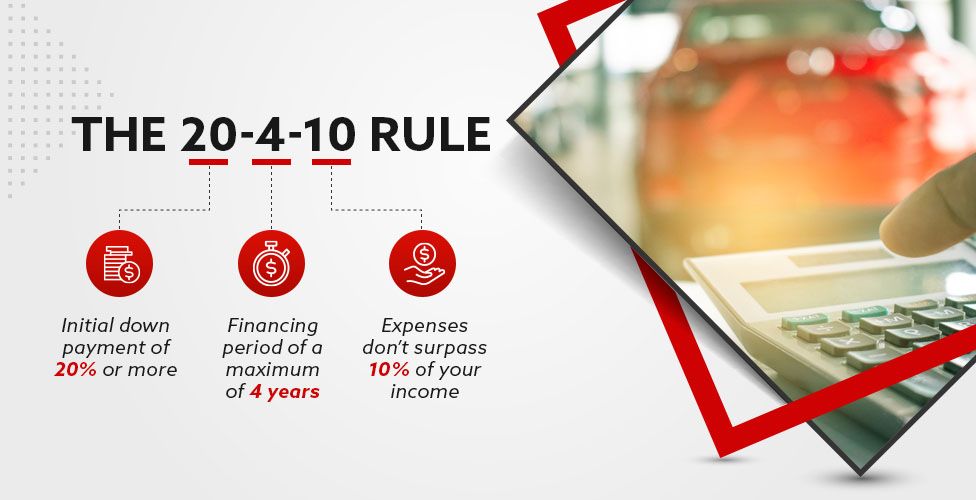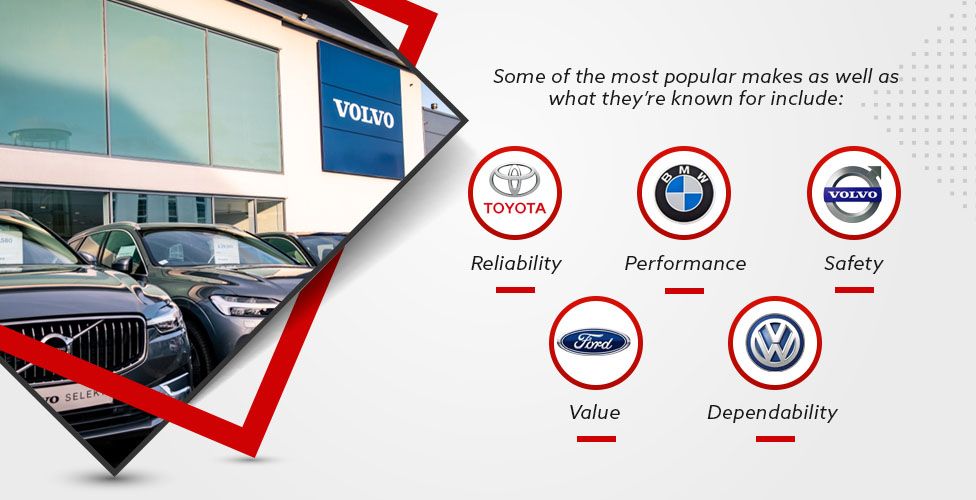
A Beginner’s Guide on How to Buy a Car
Buying your first car is often the most expensive purchase of your life to date. It’s a special moment that represents the ultimate freedom for many people. You no longer need to rely on others to drive you around, and you can plan dream road trips in your very own vehicle. The last thing you want is to run into engine issues within the first few weeks of buying a car.
Unfortunately, inexperience can cost you when purchasing a vehicle. A shiny exterior and a well-detailed interior can mask wear and tear, as well as damaged parts. Car salesmen (both amateur and professional) aren’t necessarily known for offering value and honesty in their deals. Beginner buyers must be very wary of the pitfalls associated with buying their first vehicle.
All vehicles are susceptible to damage, breakdown, and wear. As a buyer, the most important thing is to be well-prepared. It’s important to understand what you need from the vehicle and not be persuaded to purchase something you do not want or to spend more than your budget.
Determine Your Budget
Your first vehicle is unlikely to be the most expensive car in the world. Even so, determining what you can afford is a crucial step for any major purchase. While there’s nothing wrong with having a preference or dream car, practicality should be your primary consideration when it comes to vehicles. It’s also important to factor in repairs, replacements, and running costs.
If your budget can stretch to cover sportline seating or steering wheel warmers, consider whether you have enough money left to pay for a breakdown or leaking radiator in the future. Your budget isn’t just about what you can afford at the moment of purchase. Vehicles are expensive to maintain, particularly if you run into problems. Ensure you budget for the short and long term. If you aren’t purchasing the vehicle outright, a popular approach for beginner car buyers is to adopt a 20/4/10 rule. This means:

- • Making an initial down payment of 20% or more.
- • Choose a financing period of a maximum of 4 years.
- • Ensure the total expenses don’t surpass 10% of your income.
This equation was created to help people determine what they can afford when buying a car. Remember that buying a car isn’t a valuable investment. From the moment you sign the ownership papers, the vehicle starts depreciating, so the resale value should also be a consideration.
Establish a List of Needs and Wants
Beginner car buyers may not realize that some types of cars are better suited to certain lifestyles. Purchasing the right car depends on your wants, needs, and habits. If you’re a casual driver who enjoys a weekend cruise, perhaps you’ll prioritize comfort and aesthetics. For someone with an office job that requires a short commute, efficiency and durability may be more important. The average buyer is generally somewhere in between. Before you research or set your heart on a particular make or model of a car, think carefully about the essential features you need from it. Some important factors include:
- • The number of passengers you need to transport.
- • The type of driving you need to do, such as city or heavy traffic driving, highway travel, country road driving, or off-road trips.
- • How many miles you travel regularly and whether fuel efficiency needs to be prioritized.
- • Whether you need a 4-wheel drive vehicle.
- • The features or attributes that are essential like air conditioning, Bluetooth compatibility, built-in GPS, wheelchair access, or a manual gearbox.
- • Preferred safety features such as reverse cameras, blind-spot warning (BSW), automatic braking, or cruise control.
- • The amount of cargo space or trunk room you need.
- • Suitable space in the back for kids’ car seats?
- • Whether you need a tow hitch for transporting trailers.
- • The size of the vehicle in relation to your parking or garage space.

Gauge Acceptable Mileage and Age of Vehicle
When buying a used car, people always talk about the importance of mileage. This can be quite confusing for first-time buyers. Depending on the model of the car, the type of engine, and the fuel it uses, the amount of mileage a vehicle has may be more or less significant. Some vehicles are far more fuel-efficient than others. However, for an average vehicle, in terms of engine size, fuel efficiency, and engine type, you can gauge acceptable mileage quite easily.
According to the United States Department of Transportation Federal Highway Administration, the average U.S. driver drives approximately 13,500 miles per year. To determine if the vehicle has an acceptable gas mileage, divide the total miles accumulated by the car’s age. If the average number of miles per year is much higher than 13,500, perhaps you should consider other options. If the average mileage is close to 13,500, then it is likely less worn down. Determining an age limit for the car you buy can be tricky. The mileage, condition, service history, and maintenance history also play a huge part. However, cars depreciate in different stages. Generally, the first depreciation drop is the most significant (usually within the first year for a new car). Purchasing a vehicle between two and three years old is often the best time for short- and long-term value.
Shop Our Entire Selection of Car Covers
Put in the Research
Once you’ve determined your budget, needs and wants, and the age and mileage you’re willing to accept, it’s time to start researching makes and models of cars. Many drivers have definite preferences when it comes to cars. For example, some people only buy and drive American-made vehicles, while others focus solely on fuel economics. Whether the reputations of car brands ring true or not, all manufacturers are known for certain traits or characteristics. Some of the most popular makes as well as what they’re known for include:

- • BMW: Performance
- • Ford: Value
- • Toyota: Reliability
- • Volvo: Safety
- • Mercedes: Class and esteem
- • Volkswagen: Dependability
Research different car brands, makes, and models that align with your needs. Compare the safety standards, reviews, and features of the various vehicles before creating a prioritized list. If you’re buying second-hand, the particular model and age of the vehicle may not be available, so you should have several preferred options.
New vs. Used
Traditionally, beginner car buyers have always been advised to buy second-hand. While this has made sound financial sense in the past, there are currently incentives for buying new electric or alternative fuel vehicles. However, there’s no denying that opting for a new car will involve significantly higher initial costs.
The process of buying a new car is much easier than negotiating a second-hand deal. There are no hidden problems, fraudulent service histories, or cover-ups with new vehicles. The latest cars also have new technology, and they are less likely to incur serious problems, giving owners peace of mind. What’s more, new cars are generally available in various financing options with favorable loan interest rates.
In contrast, used cars are cheaper and are usually subject to less depreciation. If they have been serviced and maintained well, used cars often give less trouble than new ones. In most cases, insurance costs are significantly lower with used cars. You also have a choice of buying more luxurious cars on the second-hand market.
Ultimately, the buyer must decide what their best option is. There are pros and cons to purchasing new or second-hand. From a financial standpoint, you should make sure you can pay off the vehicle within four years maximum. The longer the loan term, the more interest you will pay on the car.
Apply for a Car Loan
If you have a good credit score, a car loan is usually the best way of financing a purchase (unless you can pay comfortably in cash). It allows you to take advantage of lower interest rates and, if your repayments are made on time, it can improve your credit score. If your credit score is average or lower, you should still be eligible for a loan, but it may cost you more to finance car payments through a dealership.

If you opt for a car loan, it’s beneficial to get pre-approved before visiting any dealership. This means you’ll be going into the negotiation knowing what rates you qualify for. It may also entice the dealer to present you with a better financing offer. When borrowing money, it’s always recommended that you use a reputable financial institution. Some lenders exploit vulnerable people, such as first-time buyers.
Visit Multiple Dealerships
Salespeople at car dealerships are trained to entice customers and close a sale as soon as possible. Even if you find suitable vehicles at reasonable prices, it’s essential to visit multiple dealerships to get a better scope of what’s available. As well as gaining a better understanding of the vehicles you’re considering buying; you can use offers from different dealerships as leverage to get better prices. A good way to assert authority with car dealers is to demonstrate knowledge. This involves asking the right questions to show that you understand the type of vehicle you want. Some questions to think about include:
- • Asking to see the car on the lot to inspect the trim level and vehicle details.
- • What the true price is, considering all additional fees (not just the sticker price).
- • What mileage is on the car, and how many times it has been test-driven.
- • If there are multiple payment options and what the terms are.
- • Enquiring if there is a warranty, what it covers, and how long it lasts.

When buying second-hand, you can also run into tough negotiators. Do not feel pressured to buy a car because of a salesman. Take your time and consider everything you want out of the vehicle. Ensure to ask key questions, such as:
- • Are you aware of any issues with the vehicle?
- • Why are you selling this car?
- • How many previous owners did the vehicle have?
- • Has the car been involved in any accidents?
- • How old are the tires?
- • When was the last service? Do you have a full-service history for the vehicle?
- • Who is your regular mechanic?
- • Do you have paperwork or proof of repairs, replacements, and maintenance?
It’s generally beneficial to have proof or documentation relating to a vehicle’s service and maintenance history. This gives you more information about the condition of the car and helps increase its resale value.
Protect Your Car with a Quality Cover
Keep Your Vehicle Safe
As a first-time car buyer, you’re likely to be at the beginning of your driving career, meaning safety should be a priority. From safe driving practices to anti-theft measures, there are some crucial vehicle safety tips to follow.
- • Research and purchase a suitable comprehensive car insurance policy.
- • Get into the habit of locking your car.
- • Don’t leave your keys in the car, and ensure you close the windows before you exit the vehicle.
- • Avoid leaving items on display in your car.
- • Plan trips ahead of time to avoid getting lost or entering dangerous areas.
- • Install a car alarm.
- • Park in safe and well-lit places.
Whether you park in a garage or on the street, car covers provide excellent protection for vehicles when they’re not in use. Extreme weather, animals, and other vehicles can damage the car’s exterior, further depreciating its value and contributing to higher repair costs. As well as preventing scratches and stains, a car cover makes theft much more difficult by limiting access to the vehicle and disguising the make, model, and any valuables left inside the car.
In particular, larger vehicles need extra protection, as their larger exterior surface area is more vulnerable to debris or loose materials blowing around. For a large or SUV-style vehicle, browse our custom truck covers to prevent unnecessary damage. Semi-custom or custom car covers are the best option as they provide optimal coverage due to the precision fit and elasticized hem that keeps the cover from blowing away. Look for models that come with multiple layers of protection, such as the Platinum Shield car cover. It features three layers: a soft fleece liner to prevent scratches, an insulation layer to minimize heat damage, and a reflective outer polyester layer that repels water and reflects UV rays.

Don’t Rush into a Decision
Car shopping is undeniably exciting. From exploring different brands and models to test driving various vehicles, it’s normal to be enticed to make a quick, instinctual decision. However, this is rarely the most favorable approach. Doing your research and knowing exactly what you’re looking for helps you make an informed decision. Don’t rush into a purchase, and ensure you consider all options before making your decision.
Once you’ve bought your car, keep it in top condition by purchasing a quality car cover from CarCovers.com. We provide a range of custom car covers, purpose-built for specific makes and models. Visit our website and use the convenient search tool to find the perfect car cover for your vehicle.
Updated